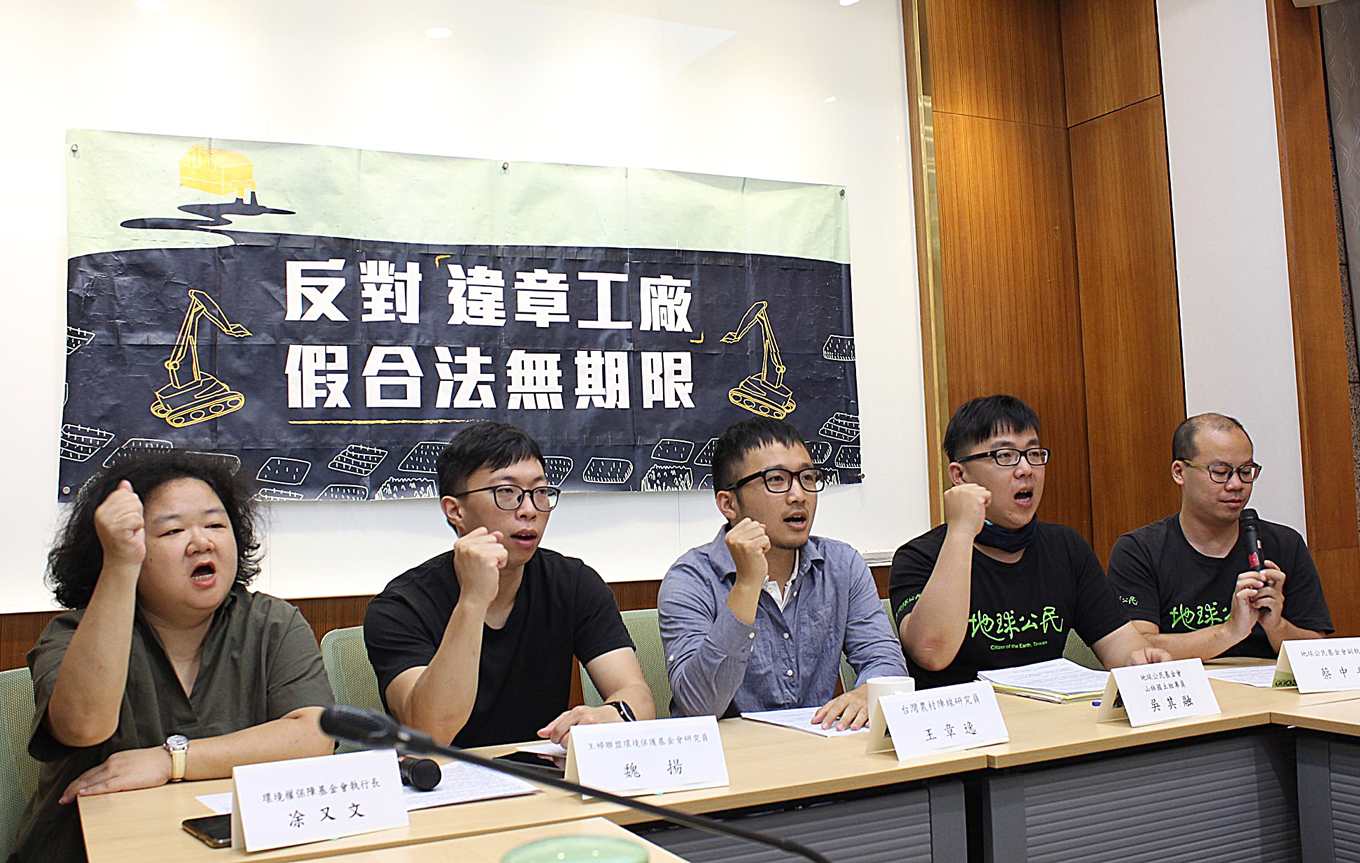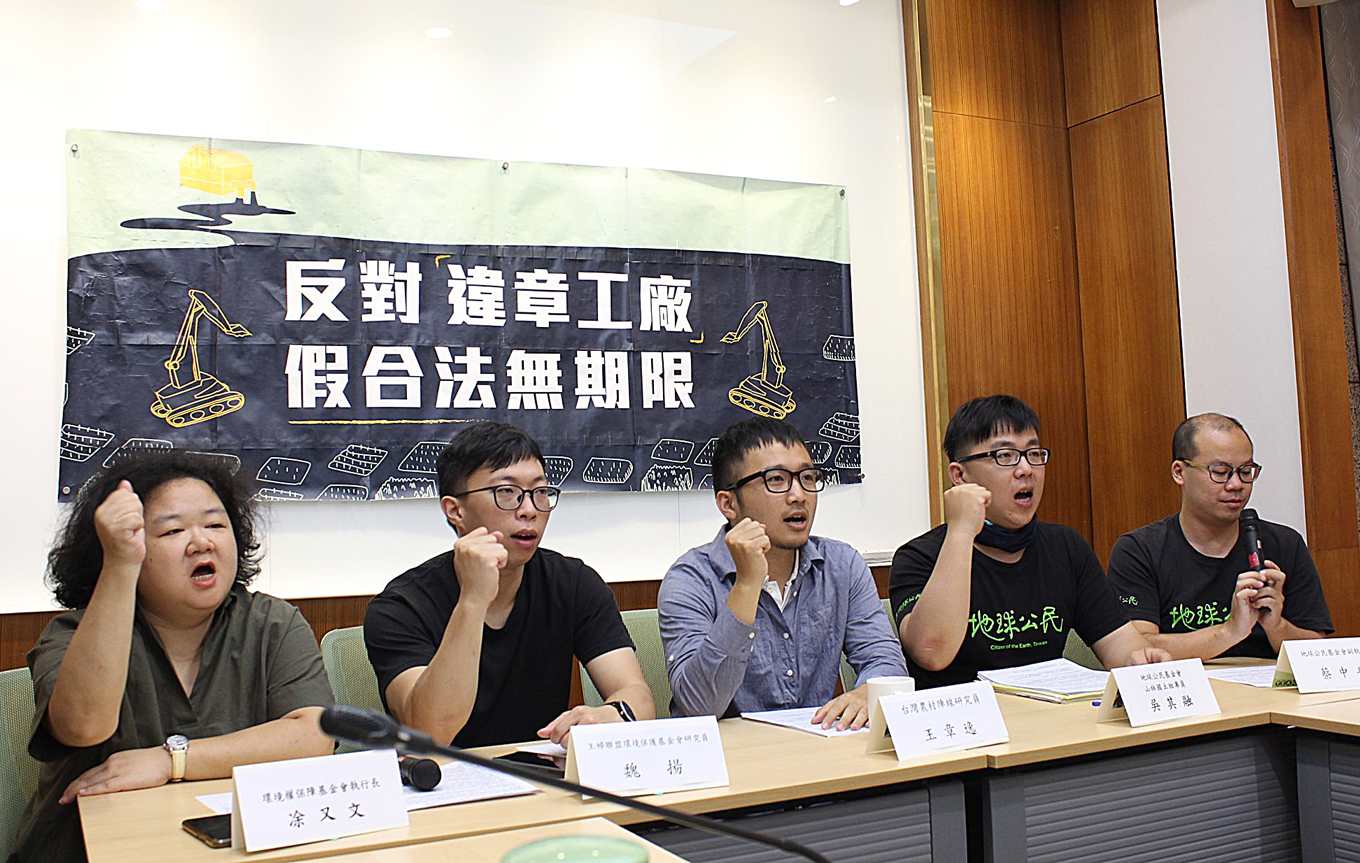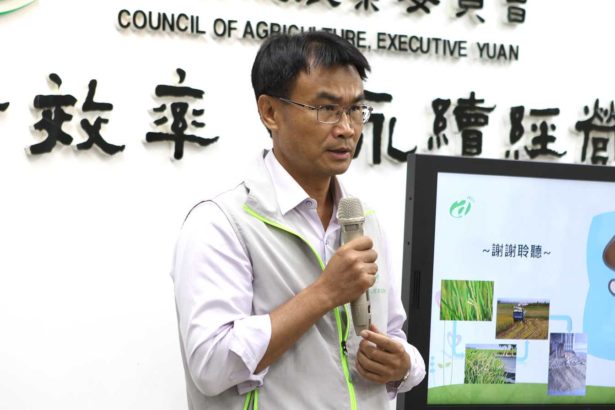The darkest day on farmland! The amendment to the Labor Assistance Law stipulates that factories in violation of regulations will forever occupy agricultural land and set up all laws.
Share
The draft amendment to the Factory Management guidance Law (hereinafter referred to as the Labor Assistance Law), which is regarded as a draconian law on the occupation of agricultural land, was submitted to the Economic Committee for examination for the first time today (6). In addition to confirming that there is no sunset clause in the "specific factory registration certificate", that is, sustainable operation can be achieved as long as there is a temporary registration certificate, and restrictions on factory applications are even relaxed. in the past, factories were not allowed to be set up on first-class agricultural land, and the amendment provisions are also determined to be cancelled. (please click here for news background)
The draft also contains that the Labor Assistance Law is not regulated by the Regional Planning Law, the Land Planning Law, the Urban Planning Law, the Construction Law, and the regulations on Agricultural Development. Legislator Lin Daihua even put forward a number of incidental resolutions, including proposals that illegal factories of agricultural land can be bought and sold freely, and that the return fee for the change of land is only required to pay NT $5%. Although no consensus has been reached at the meeting today, negotiations between the government and the opposition will continue.
In response to the results of today's review, the ring delegation expressed a strong protest, and Wu Qirong, commissioner of the Earth Citizens Foundation, denounced, "this is basically a permanent elevation of many laws and regulations." Let the government lose the room to guide the industry to make substantial improvement.


Photography / Duan Yaxin
The "Labor Assistance Law" was sent for trial, and instead of moving forward, it released more water.
The Labor Assistance Law was sent to the Economic Commission for review. Article 28 (no sunset clause in the "specific Factory Registration Certificate") and Article 28 (not subject to regional planning law, land planning law, urban planning law, construction law, agricultural development regulations, etc.) were formally passed, allowing illegal factories on agricultural land to obtain permanent residency.
In addition, legislator Lin Daihua also proposed many incidental resolutions, which were formally passed by the committee today, including in order to "guide the legalization of agricultural land factories." in the "rules on the Control of non-Urban Land use," the restriction that "first-class agricultural land cannot be used as land for other undertakings" should also be relaxed, which means that factories on excellent agricultural land can have the opportunity to legalize on the spot. This incidental resolution was adopted at the meeting, asking the Ministry of Economic Affairs, the Ministry of the Interior and the Council of Agriculture to complete the revision of the relevant laws within two weeks (before 2019.05.17).
More resolutions attached to the release of water require consultation between the government and the opposition, and the ring delegation is pessimistic.
Lin also proposed other incidental resolutions, but no consensus was reached at the meeting, so it was still necessary for the government and the public to negotiate, including: there is no need to make an "isolated green belt" within 1.5 meters of the factory, which is tantamount to relaxing the distance between the factory and the agricultural land. to bring factories and farmland closer together. However, this incidental resolution has not yet reached a consensus at the meeting.
In Article 28 (9), Lin proposed to abolish sections 1, 2, 3 and 6 (Note 1), which means that illegal factories of agricultural land can do business in the future. Lin also put forward a proposal to pay 5% of the compensation for the change of land in Article 28 (Note 2). However, no consensus was reached on these two points at the meeting, and further consultations between the ruling and opposition parties will be held.
Although this amendment has yet to be decided through consultation between the government and the public, the Earth Citizens Foundation is pessimistic about the direction of amending the law, because the time for item-by-item discussion and review has ended at this stage. I think that after that, the whole will go in a bad direction.
Legislators mentioned "information disclosure" and "rolling review". Round-the-world delegation: meaningless.
Compared with other water release proposals, the Economic Committee today also proposed, through legislator Lai Ruilong, to add the principle of "disclosure of information" in 28 to 3, standardizing the publication of the list of new and unregistered factories under its jurisdiction. In addition, legislator Cai Peihui put forward an incidental resolution of "rolling inspection" once every three years at the meeting to supervise the improvement of the factory, and finally amended and passed the extension at the meeting of the committee. Change it to a rolling inspection once every five years.
Wu Qirong, commissioner of the Earth Citizens Foundation, said that the "rolling review" is meaningless. If a time limit is not set, the incentive for the factory is simply insufficient. The relaxed conditions proposed by Lin Daihua just make the factory want to stay on the farmland and wait for the law.
With regard to the proposal that "factories become a commodity to be bought and sold", Tsai Chung-Yueh, deputy chief executive of the Earth Citizens Foundation, said bluntly, "if I don't want to run a factory, either I'll stand still, or I'll sell it." in that case, who would want to legalize it? " It is strongly criticized that this runs counter to the spirit of "management" and "counselling" of the Labor Assistance Law to legalize it.
Earth Citizen Foundation: permanently overhead many laws and regulations
Wu Qirong lamented that the draft amendment would allow illegal factories set up before May 20, 2016, to be extended indefinitely as long as a specific factory registration is obtained, and there is no need to legalize land use change. In addition, under the effect of Article 28 (8), it is not subject to regional planning law, land planning law, urban planning law, construction law, agricultural development regulations and other regulations.
In addition, article 28 of 10, paragraph 2, paragraph 2 (Note 3), as long as the operator provides a legal plan for the use of land, the land may be changed. He lambasted, "this is the permanent erection of many laws and regulations." Let the government lose the room to guide the industry to make substantial improvement.
Cai Zhongyue, deputy chief executive of the Earth Citizen Foundation, said that some illegal factories are scattered among farmland, while some are concentrated factories of a slightly larger scale. As sporadic factories will directly affect agricultural practices, they should not be legal on the spot, while centralized factories should provide guidance towards legalization, but they should be transferred to industrial land. Wu added that the bills made it easy for factories to "legalize on the spot" rather than "relocate to legal areas".
Ring Tuan: the regulation of illegal factories is a long way off, allowing a mixture of farmers and workers.
Wang Chang-Yi, Taiwan's rural front commissioner, cut in from the point of view of land. What is most criticized about farmland factories, he says, is their scattered distribution, which makes pollution difficult to control and increases the risk of industrial waste water contaminating farmland. The "Labor Assistance Law" has been in force for nearly 20 years, and this draft amendment does not reach the regulation of illegal factories, but only obtains the "local legal" provisions of Article 28 (10). Once the amendment law is passed, it is clear that there is a mixture of farmers and workers.
Wei Yang, the advocacy commissioner of the Housewives' Union Environmental Protection Foundation, said that President Tsai ing-wen had expressed the political view of "Food and Security five rings," in which "strengthening source management" to prevent environmental pollutants from entering the food supply chain was the first link of this policy. if this version of the draft is passed, there will be a big gap in source control.
Wei Yang said that the government should centralize the management of agricultural land factories, give priority to the relocation or closure of medium-and high-pollution factories, and specify a five-year sunset period, which must not be legalized on the spot, allowing food safety unexploded bombs to continue to be inserted in agricultural land.
The type of pollution is determined by the Ministry of Economic Affairs. Tires, asphalt concrete and metal casting are all low pollution.
In response to the loopholes in the determination of "types of pollution" in the draft, Tu Youwen, CEO of the Environmental Rights Protection Foundation, explained that temporary legality can be obtained as long as the laws and regulations on environmental protection, soil and water conservation, water conservancy, and fire protection are complied with. what's more, it can be put forward in the future that the "legal plan for land use" is legal on the spot after approval. "but at present, the decision-making power only rests with the Ministry of Economic Affairs, and there is no EPA or the Council of Agriculture to make the relevant determination."
The determination of "low pollution" or "medium and high pollution" is also determined by the Ministry of Economic Affairs according to the type of industry. Industries that are not "medium to high pollution" will be classified as "low pollution", but there are many industries that are classified as low pollution, such as tire manufacturing, asphalt concrete, related metal casting industry, and so on. in fact, there is a risk of medium-to-high pollution. She believes that the determination of pollution and the degree of pollution on agricultural land requires the participation of agricultural administration and environmental protection units, and it cannot be decided by the Ministry of Economic Affairs alone.
Ring Mission: the draft was adopted as "tragedy of Farm Land"
After passing through the Economic Committee, Wu Qirong said, "apart from the disclosure of information in No. 28 and No. 3, basically there is no response to any demands." He said that if the DPP really allowed the proposal put forward by member Lin Daihua to be passed through consultation, making agricultural land a tool and investment target that could be bought and sold freely, "it would probably become a tragedy of agricultural land." Tsai Chung-Yueh also said that apart from the disclosure of information, it is basically all the demands of "hitting the face" in the past.
The "citizen litigation" in 28 to 13 is also retained for consultation between the government and the public. Today's committee is even worse than the draft version of the original political Yuan, calling for the proposal put forward by legislator Lin Daihua not to be passed through consultation with the accompanying resolution.
Tsai Chung-Yueh also stated that the current work Assistance Law is not without guidance, but it is because of mistakes in policy formulation that 90% of the factories do not have any improvement. This draft amendment will only further reduce the incentive for factories to turn to rationalization and legalization. He also added that because it is common for factories to be scattered on residential farmland, it is required that the information of the work Assistance Law must be made public, and that there should be a mechanism for public litigation, so that the public can put forward supervision on their own.
The Earth Citizen Foundation, the Taiwan Rural Front, the Housewives Alliance Environmental Protection Foundation, and the Environmental Rights Protection Foundation jointly put forward four demands today (6). The "specific factory registration" clearly sets the sunset deadline, and guides the relocation and closure of medium-and high-polluting factories to sunset within five years; the "Factory Management guidance Law" should include the provisions of "information disclosure" and "citizen litigation", so that the public can have channels to save themselves; the Factory Management guidance Law includes the priority provisions of priority relocation guidance and centralized management The identification of pollution industry and the legal business of farmland factories on the spot should be determined by the Environmental Protection Agency and the Council of Agriculture. The government is required to formally solve the mixed problem of farmers and workers and formulate a long-term and fundamental policy to solve the problem.
Su declared that "the economy is at ease, and the Lindeng illegal factory is legal on the spot," and the ring regiment criticized the release of water to the end.
- Prev

With the new development of mushrooms in Taiwan, the Agricultural Test Institute has developed an electric energy sensing system to monitor the electricity consumption of growing mushrooms.
The annual output value of mushrooms in Taiwan is more than 10 billion yuan, but the cultivation of Pleurotus eryngii and Flammulina velutipes, including Pleurotus eryngii and Flammulina velutipes, needs environmental control, which consumes a lot of electricity. In order to assist the mushroom industry to use electricity reasonably, the agricultural experiment carried out the "Electric Energy Sensing system" to evaluate energy saving and provide abnormal alarm in mushroom cultivation field.
- Next

Self-economic zone dispute "opening up of 830 agricultural products in China, turning over water into MIT, Chen Jizhong: absolutely killed Taiwan's agriculture."
Self-economic zone dispute "opening up of 830 agricultural products in China, turning over water into MIT, Chen Jizhong: absolutely killed Taiwan's agriculture."
Related
- A course of planting techniques and methods on how to grow carrots
- How to plant the latest tulips?
- Is it better to pick tea in the morning or in the afternoon? When is the best time for tea to be picked? what is the third or fifth tea?
- Launch Yuanxiao Happy combination Haocha + Tea Yuan healthy Taste
- Penghu Tourism "Fireworks 20 Parade with You"
- 2022 West Lake Happiness holds "Digital Revitalization Voucher" and draws iphone13 and laptop.
- Banqiao Fuzhou social houses are designed to change start-up combined with police elimination to create a safe and livable environment
- The convenient measure of "mechanical weeding" in Xinbei has been abused and the Agriculture Bureau has imposed heavy penalties on the illegal land consolidation.
- Changgeng University Joins Hands with Four Memory Factories to Rescue Memory Talent Shortage
- The list of Taiwan's top 100 MVP managers is listed by the Director-General of the Farmers' Association of Sanxia District.

